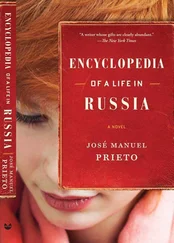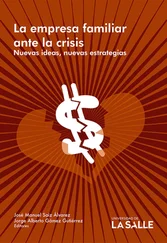All of it false, Petya, from beginning to end! There was no Kirpich, no Raketa, no one had swindled anyone, your mother’s fear was pure dramatic performance, as in the movies! My love for her, my obvious love and deep feeling for her, used and channeled to force me to take this step.
They’d agreed on it, planned it out with Batyk, who had mysteriously disappeared the day we took the second outing. They were subtly winning me over, plunging me — a mere child, no older than you in spirit — into a dense cloud of ink and deception, knowing me incapable of correctly reading the twisted minds of three adults, allowing me to hold her close while dancing, the heat of her breasts through the dress. From her warm arms to the fear of being executed for having seduced his wife.
And then, without giving me time to come back to my senses, zap! — Larissa! The ultimate blonde, the most beautiful woman, the incredibly appealing young lady in whose delightful proximity I’d be softened up once and for all. Thus weakened, and previously addled by the revelation of the ersatz diamonds, I would agree to sell them, my eyes vacant, my pulse fluttering.
And should I fail to yield immediately, should they perceive some residual stiffness in my neck, there was the showy ploy of the cell phone call and their feigned panic that the monsters straight out of Wells and Welles were catching up to us.
Coming toward us, those men, and nothing could stop them.
I inquired: And if you gave them back the money, wouldn’t they be satisfied with that? Wouldn’t we ultimately gain the most important thing, Nelly, which is time?
They don’t want it back, was her answer, they want us dead. What’s more, we’d never manage to sell so many millions. Nor is that the plan; we don’t want you out there selling that many stones, only what’s necessary, just enough money to fly to South America and settle there.
I wouldn’t go back there with them, Petya, repatriated by that strange affair and then suffering and regretting later, many winters later, in that hotel room.
And when I’d reached this point in my reflections, the tree out at the far point along the beach explained to me, rustling its branches: “Excellent! Very good! What you’ve come up with is the true explanation, the closest reading, the correct gloss of all that part of the Book, its first chapters or commentaries, no less.” Or was I to read that fiction as real, the whole improbable story of the swindle, the tall tale about murderers? False, Petya! False, Vasily! And — forgive me! — false, Nelly!
There were no such murderers, no danger threatening us, no malevolent pursuit, only your father’s infinite ineptitude, Petya. The times he’d tried to sell the diamonds and hadn’t been able to, staying at Larissa’s place instead, contemplating her alabaster breasts like a modern jeweler who selects mother of pearl, opal, and quartz where others before him had used only diamonds. But for what reason? Why diamonds? he must have said to himself, when I have garnet lips and cheeks of pearl right here?
No murderers. They could have refrained, Petya, from lying to me, your mother putting on that big show of fear. Dreaming up the whole thing entirely for my benefit in the sole — and now, in the branches of the tree, clearly discernible — aim of making me sell those stones.
5
Now, just as I took to be false the Commentator’s claim that the ancients had no word for blue, that they didn’t distinguish between the various tones of blue so that to them the sea really was a sheet of red, the wine-dark sea, I resisted believing in the reality of the murderers and took them for a tale ingeniously spun by your parents in the sole and obvious aim of making me sell the diamonds. Until one morning I heard it, the sound and rumble of the sea changing color. The machinery ground weightily to a halt; the motor in the depths of the ocean ceased to pump out blue, and the whole sea, its entire surface, took on that other, impossible coloration.
Perhaps I’d thought the wine color was some optical device, the sea studied through a prism, an uncut diamond. Or else colored by nostalgia, sadness, the words the Writer confides to his private journal in Balbec, sighing inconsolably over the Duchess of Sanseverina: Why is the spectacle of the sea so infinitely and eternally pleasing? Because the sea makes us think both of immensity and of movement. For a man, six or seven leagues are the radius of infinity — an infinity in miniature. But what does that matter if it’s enough to suggest the idea of total infinity?An annotation in blue, azul , no red about it, and I wasn’t tempted, even for a second, to look through the window for ocular confirmation. For that would be to put it to the test, to experiment. Far more efficient and unobjectionable to rely on the Writer’s authority, pulverizing the wine-dark seaby the greatness of the passage in which he speaks of its unfathomable blue, of its infinite spectacle.
My fear? Vanquished, Petya, completely vanquished. Listening to music at night, growing calm, a single record. I slept better with that record, I managed to reconcile myself to sleep again after having believed them to be so close, the Writer’s monsters, that I imagined them floating out there in the darkness beyond my window, peering in. And I would turn out the light and listen, before falling asleep, to a record whose story I’ve hesitated to tell you. In Dresden, in 1947, the ambassador plenipotentiary of Russia, a nobleman with a German family name, was suffering from severe insomnia (though there is nothing in Forkel or in Spitta about the reasons for his anguish). In the middle of the night, Johannes Goldberg, a disciple of Bach, would be summoned to staff headquarters on Vogelstrasse. His cab fare was covered, and I imagine he was rewarded afterward with generous tips. Goldberg would race up to the Count’s chambers and sit down before the clavier in a corner of the spacious bedroom. He would begin by playing the Aria which the Commentator mendaciously attributes to an anonymous French author and not to the divine inspiration of Bach, the greatest ever, the musician who is to musicians what the Writer is to writers.
The cascade of the first variation emerged from the clavier into Keyserlingk’s ears, and he listened attentively, without ever understanding its mathematical formulation. Perhaps he would close his eyes at the sound of the first chords, his knees quivering in agitation during some of the canons and fugues. Dresden and Leipzig both under his command, the Soviet troops billeted there trafficking in carpets and wristwatches, and he wishing ardently to go home — or not, I don’t know. He would raise his eyelids and study Goldberg’s emaciated back, his thin arms opening wide and closing in over the keyboard. A Jew, as his surname indicated, a survivor of Auschwitz, and the Count listened to him play, wiping away the tears, moved by the harsh fate of this young man, hundreds of kilometers from home. Until a deep sleep would overcome him, he’d succumb during the fifteenth variation, an inverted canon. I know he would because I never managed to make it past that one either, couldn’t get out of bed to turn the record over. Once the sixteenth started, my sleep was guaranteed.
I didn’t know — can you believe me? — that somniferous powers are often attributed to this piece. I discovered those powers by chance, and since I invariably fell asleep at the end of side one, I didn’t know the latter variations very well for several years. Sometimes I managed to turn the record over, and I would always wake up again when the Aria resumed, just as in the beginning, the same slow and majestic air. I should have gotten up then to turn the stereo off, but I preferred not to, anguished by the darkness, in the disquiet of late night. The record would go on spinning, the stroboscopic eye tirelessly counting the grooves on the edge of the turntable (a model from the 1980s; they don’t make them like that anymore), the needle advancing toward the center of the record.
Читать дальше












